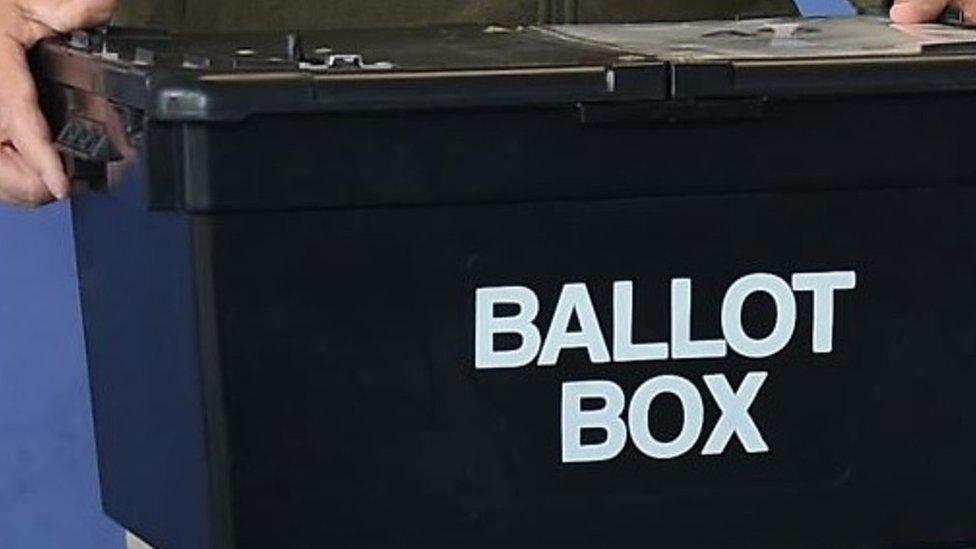Why 16-year-olds won’t get the vote in time for an election
- Published
- comments
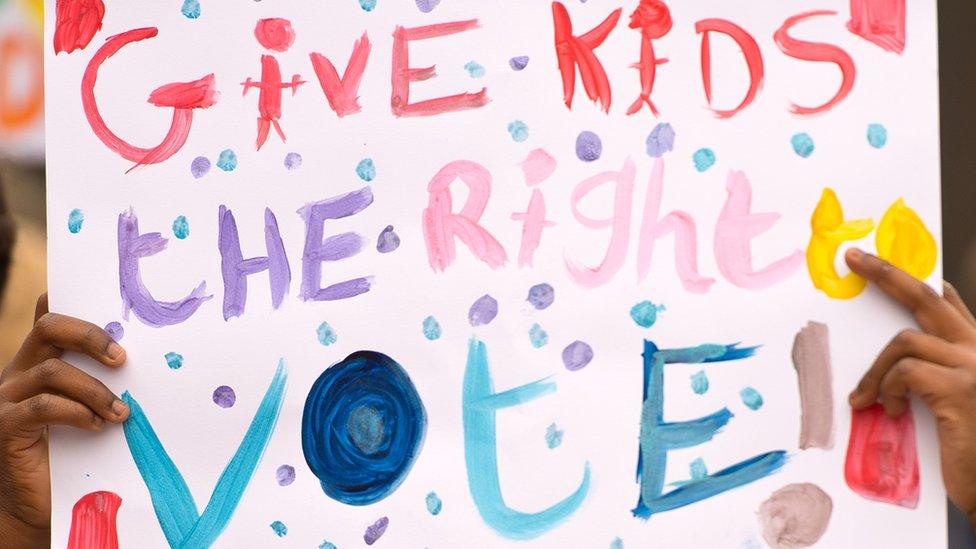
You've probably heard that there might be an election in the not-so-distant future.
And if you're under-18, you could be wondering whether you'll be able to have a say.
There's been a lot of chat about whether 16-year-olds in England, Wales and Northern Ireland will get the vote.
With the exception of the Conservative Party, political parties like Labour, the Liberal Democrats and SNP all supported lowering the voting age to 16 in the last election in 2017.
But it's almost certain that 16 and 17-year olds won't be able to vote if a snap election is called.
There is one part of the UK which allows under-18s to vote - in Scotland they voted in the 2014 independence referendum and can now vote in local and Scottish parliament elections.
The last time there were serious rumours about an election, in September, nearly 200,000 people applied to register to vote in just 72 hours - with more than half being under 35.
Why won't 16-year-olds be able to vote?
There's not enough time to lower the voting age this time, according to the Lib Dems.
The party has said it wants to pass a bill in Parliament to guarantee an election on 9 December, which means they will not be supporting votes at 16 in this instance.
The Electoral Commission - which is the body that oversees elections in the UK - says it would take six months to make sure a new group of voters could be registered and eligible to vote in an election.
That's the advice they've given to Wales - which is currently looking at allowing votes for 16 and 17-year-olds in its assembly elections.
The current voting age in England, Wales and Northern Ireland is 18.
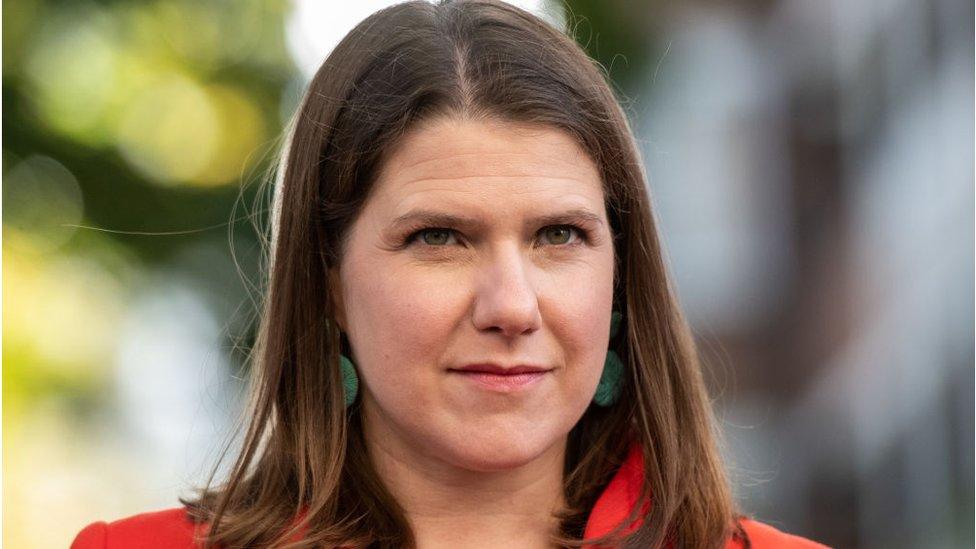
Jo Swinson wants to trigger an election on 9 December
Lib Dem leader, Jo Swinson, says the "time pressure" involved in securing an election quickly means they will not have voting at 16 as part of their bill.
And with the Conservative Party, who have the most MPs, not supporting votes at 16 - it's unlikely there would be enough votes in Parliament to lower the voting age.
The Cabinet Office - a government department that supports the prime minister - says the voting age will not change.
A Cabinet Office spokesperson tells Radio 1 Newsbeat: "We have no plans to change the national voting age. The age of 18 is widely recognised as the age at which one becomes an adult. Full citizenship rights - from drinking to smoking to voting - should be gained at adulthood.
"What is vital is that we educate people from a younger age about democracy and give them the confidence and enthusiasm to participate when they are 18."
Who could benefit?
Even if 16-year-olds can't vote in the upcoming general election, with the support of Labour, Lib Dems and the SNP, it doesn't mean it might not happen in future.
The BBC's Political Research Unit tells Newsbeat: "There is not any conclusive polling but based off other consistent polling, 18-24 year-olds are more likely to support Labour, the Greens and the SNP so it's a fair assumption to say this would be the case for 16 and 17-year-olds."
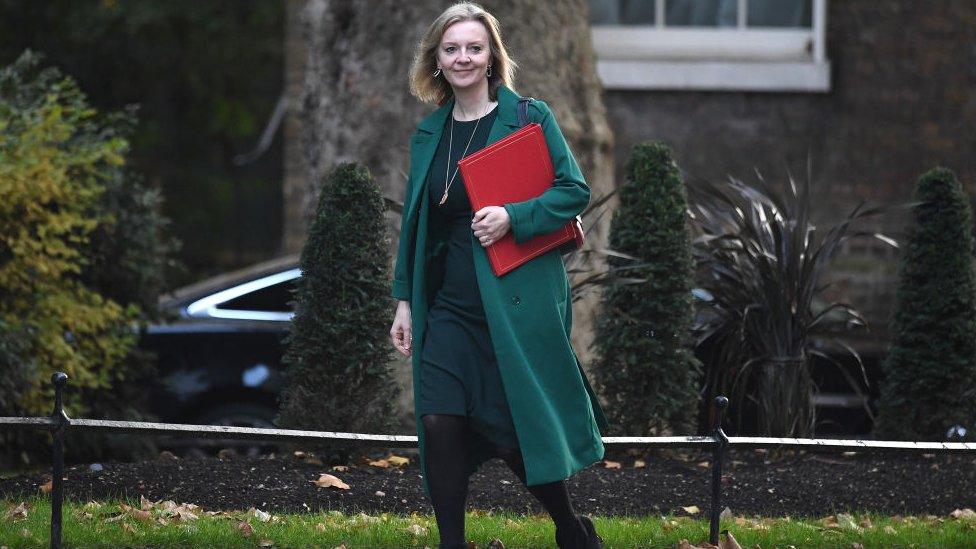
Liz Truss thinks PM Boris Johnson can inspire youth voters
But Liz Truss - the International Trade Secretary - told Newsbeat during the Conservative Party Conference in September that her party can bring "young people on board".
She says the Conservatives believe "that people should be in control of their own lives and future" - which will resonate with younger voters.
"The next generation coming through don't like being told what to do."
"They want to make up their own minds. They want to decide their own future."


Follow Newsbeat on Instagram, external, Facebook, external, Twitter, external and YouTube, external.
Listen to Newsbeat live at 12:45 and 17:45 weekdays - or listen back here.
- Published5 September 2019
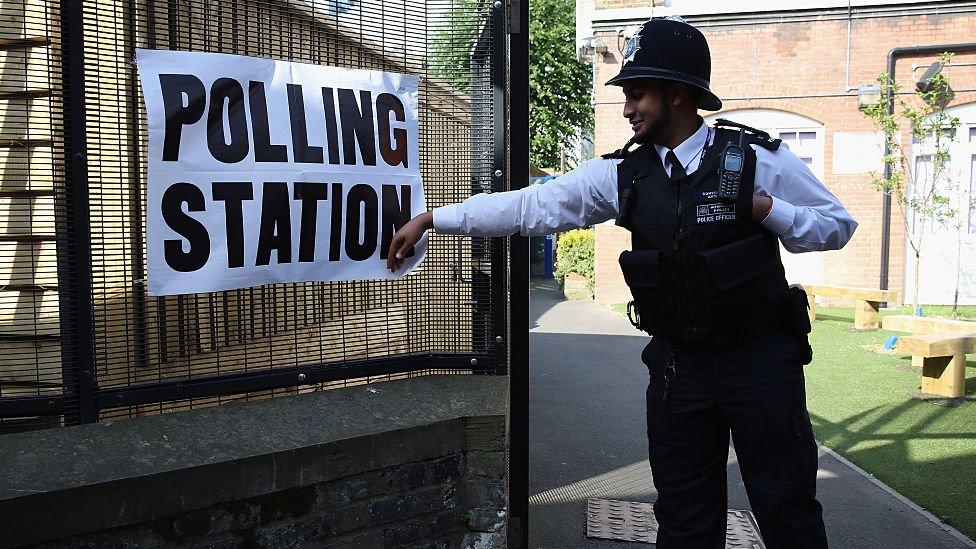
- Published24 September 2019
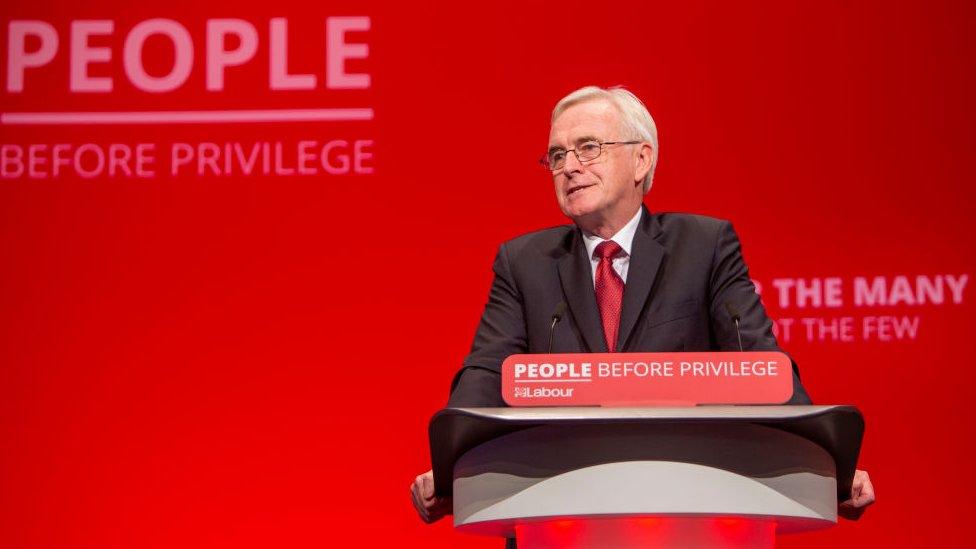
- Published7 January 2019

- Published18 May 2019
